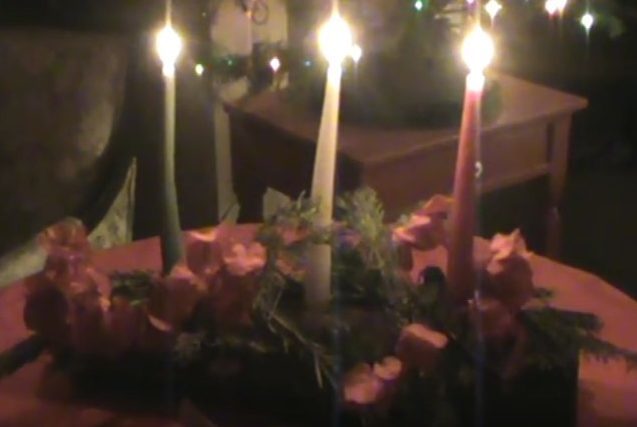Yes, I know. Here it is, nearly Imbolc on the calendar, and I am just now sharing my ponderings of the Yule season. If you have been following me on YouTube, you know that I haven’t actually skipped it. In fact, I have had a very full several months of observance and celebration. But, what has it all meant to me and, perhaps most importantly, what place does Yule hold on the Wheel of the Year?
[Please note: the above title, “Skipping Christmas”, is a reference to a novel by John Grisham, and you probably already know that it wasn’t skipped then, either.]
This is a very special time of the year, as it holds significance to so many people of different paths, which must include the Christian holiday of Christmas and the Jewish Hanukkah. For each of us, it is a celebration of light, — the Christians welcome the light called the Son of God, the Jews celebrate an eight-day Festival of Lights, and pagans witness the rebirth of the light half of the year.
The actual word “Yule” comes from the Norse Viking winter holiday, Jól, which is actually a plural word (indicating that this pagan celebration took place over a period of several days and nights). The 1st century Norwegian king, Haakon the Good (a Christian) actually legislated that the beginnings of both Yule and Christmas had to occur on the same day. It is interesting to note that, aside from the excessive amounts of feasting and drinking that occurred during Jól, the swearing of oaths (unbreakable pacts) was the most important part of their celebration. Was this the beginnings of our own modern New Year’s custom of making resolutions?
Regardless, I am most interested in the fact that, to each of us, this time of year is definitely celebrated as a season. For our Christian and Jewish brothers and sisters, this seems quite reasonable, considering the significance it holds for them. But, for pagans? Can we merely anticipate the return of longer periods of daylight in our days for an entire season?
I look to our pagan ancestors for guidance of what to include in my Yule season celebration. As many were farmers, and unable to tend crops during the winter, they spent these long, dark days preparing for the next growing season. They cleaned and repaired their tools, and laid their plans for the season to come. Their weapons were also sharpened and made ready, should their use be required.
Many modern-day pagans use this time of year to do shadow work, — to work on the parts of our own personalities that we often hide or deny, to bring them into the light of awareness. I find that there is no better therapy for depression, no better way to overcome crippling habits than to re-direct my energy toward the planning of a new project I am excited about. This holds especially true for me during this time in my life when I’m facing the end of my family business and uncertain future.
So, I’m spending the remaining days of the Yule season laying a strong foundation for what is to come. I have cleaned and sharpened my tools — of both mind and matter. My altars are renewed, my cupboard well-stocked. I have taken care to protect my home and my loved ones inside, by any manner of means, by my hand. And, I am laying plans for my future. I am holding both fear and depression at bay, not unlike a Viking warrior, with one hand on my shield and my eye to the horizon.
My resolution is my word; my word is my oath. So mote it be.
I wish you blessings.

